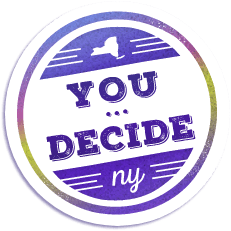Youth gambling is problematic, but can be exasperated when it is tied to, or causing, intimate partner violence (IPV). Being aware of the risks and consequences of gambling could help us be more aware of gambling problems, as well as the violence that may be a result of them.
Gambling Problems and Intimate Partner Violence
Intimate partner refers to both current and former spouses and dating partners. Gambling problems can lead to IPV, such as:
- Violent or aggressive behavior within the home, technically involving the violent abuse of a spouse or partner;
- A pattern of behavior that is used to gain, or obtain, power and control over an intimate partner;
- Abuser aggression that occurs in a romantic relationship.
When we’re looking at statistics of intimate partner violence, there are some statistics to keep in mind, such as:
- 38% of people with a gambling problem are victims of intimate partner violence,
- 37% of people with gambling problems are perpetrators of intimate partner violence, and
- 11% of all perpetrators of intimate partner violence have a gambling problem. (Dowling, et., al, 2017)
There is certainly a correlation between problem gambling and intimate partner violence. When we look at this connection, it is very important to be aware to keep our youth safe from both problem gambling and intimate partner violence.
Family and Intimate Partner Violence
Youth are very aware of the dynamics inside their home. Everything that happens in the home, whether or not parents attempt to hide it, does affect youth in one way or another.

One study of emergency room visits showed that wives or intimate partners of men who both had gambling problems and abused alcohol were 50 times more likely to visit an ER as a result of being physically abused (Muellemen et al, 2002). Another study found that gambling related stressors can create family conflict and motivation for escalating IPV.
In that same study, they found that victims of intimate partner violence may use gambling as a form of escape, or coping mechanism, which could then turn into problematic gambling behavior. If we’re looking at escalating violence at home, emergency room visits due to family violence, and escalating conflict due to gambling related problems, youth are definitely affected.
Youth Gambling and Relationships
If family gambling problems have a negative affect on youth, youth gambling problems can definitely have a negative effect on their own intimate relationships. Women are, themselves, at an increased risk for gambling problems. Women tend to engage in more escape gambling to cope with stress. This stress can be related to IPV. Women, age 18 to 24 have the highest rates of IPV. One study found that 1 in 4 women experience severe IPV and 1 in 10 women experience sexual assault by an intimate partner. These types of traumatic experiences, due to IPV, can be a powerful driver for gambling problems. (Smith, et, al, 2017)
Men are likely to be perpetrators of intimate partner violence (Smith, et, al, 2017). They’re more likely to engage in violence for purposes of coercion and control. Men who visit the emergency room with injuries inflicted by their female partners (in heterosexual relationships) are likely defense or retaliation for violence they’ve imposed on these women (their intimate partners) (Muellerman & Burgess, 2008).
It is also important to note that 1 in 5 people struggle with a gambling problem has either attempted or died by suicide.
Looking at this different research, it is very obvious that gambling has a substantial effect on IPV. Although relationships start small in youth, they do get more intimate as youth reach the ages of higher teens and early 20s. It is important to be aware of the effect that problem gambling can have on youth and, in turn, have on their intimate relationships.
What To Look For
Focusing on problem gambling and IPV, there are a list of things we can look for as warning signs.
The signs can include:
- Fear of retaliation,
- Lack of social supports,
- Shame and stigma, and
- Love and hope that their partners will change.
Signs of problem gambling in youth include:
- Poor academic performance,
- Relationship problems (both intimate and family),
- Substance use and abuse, and
- Anxiety and depression.
Things You Can Do
The first thing you can do is be aware. Learn all you can about youth gambling so you know what to look out for. Also, be aware of signs of IPV. Be aware of signs of problem, gambling. Know that these signs can point to a problem of IPV due to gambling problems.

Second thing, and more important, is to have an open relationship with your youth. Open dialogue is the number one way to identify if things are not going well. Youth may not disclose in detail specifically what’s going on right away. At the very least, you’ll have an opportunity to see that there may be something going wrong. Then, you’ll be able to start taking action to learn more and connect with support for next steps you can take.
Third thing is to know what support is available. You can always reach out to your local Problem Gambling Resource Center (PGRC). When you call your regional PGRC, you’ll be connected to a trained professional immediately. This person will be able to be a listening ear and a way to connect with local resources, whether it’s information, support groups, or treatment options. Your local PGRC does focus on problems due to gambling, but they have partnerships with agencies across the region. Some of those partnerships do include services and resources for individuals that are affected by IPV.
The most important thing to keep in mind is that you are not alone, and we are all here to help.

